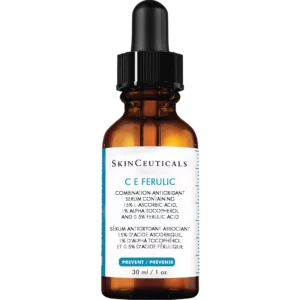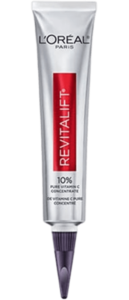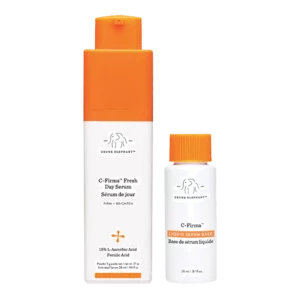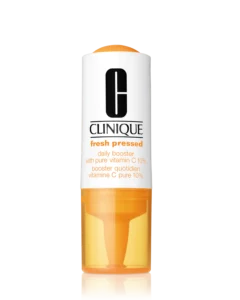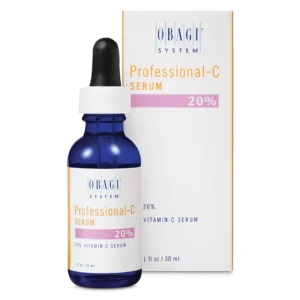
The Top-Rated Vitamin C Serums in Canada
Vitamin C is a powerful antioxidant capable of brightening complexion, fading darkspots and warding off fine lines and wrinkles. Its superpower abilities make it a must-have in anyone’s skincare regimen but is also its Achilles heel. It’s a notoriously fickle ingredient, degrading in a matter of months even in the best circumstances. Since it can be difficult to tell if a serum’s high price is for better formulation or better marking, we’ve collected the best-reviewed vitamin C serums loved by users and dermatologists, and offer tips on how to pick the best one for you next time you’re shopping around.
Our top picks
What to look for in a Vitamin C serum
Despite the numerous benefits provided by Vitamin-C, it is a notoriously unstable ingredient, degrading when exposed to light, air or heat. Therefore, you’re going to want to consider these factors to get the most of your purchase.
Packaging – Since vitamin-C needs to be kept from light and air, it should be contained in a dark-coloured and/or opaque bottle that can be closed air-tightly. If the brand’s bottle doesn’t fit these criteria, but you swear by the results, fret not. Simply store in a cool, dark place such as the fridge or wrap the bottle in foil.
The shelf-life of vitamin-C serums tends to be around 3-5 months, so you might want to purchase small bottles to keep it from going to waste, especially if you’ve paid a high price for it.
Formulation — This is a multi-pronged factor that determines in what form Vitamin-C appears, as this determines its stability and efficacy; what ingredients appear alongside it or is used to dissolve it, as this may bolster its stability; and the consistency/state of the product, as this determines how you must apply it and at which point in your overall skin-care routine.
Chemistry – Vitamin-C comes in a variety of forms, some more shelf-stable than others. Look at the ingredients list and consistency to get a sense of how your serum may act.
- Ascorbic Acid (otherwise known as L-Ascorbic Acid (L-AA)) is a water-soluble form of Vitamin-C and bioactive, meaning it’s ready for your body to use. However, it is also unstable. Paired with ferulic acid, it becomes more stable and easier to absorb. It’s recommended at 10-20% concentration but can be irritating for those with sensitive skin.
- Ascorbyl phosphates (Sodium ascorbyl phosphate (SAP) or Magnesium ascorbyl phosphate (MAP)) is a stabilized form of Vitamin-C, meaning it has a longer shelf life than L-AA.
This is by no means exhaustive. There are many more different formulations that you may come across, but scant clinical tests for their efficacy.
Solvent – Vitamin-C may be dissolved in water in what’s known as a hydrous solution, in which case it’s absorbability may be increased. These solutions also tend to be less viscous (waterier) meaning if you’re someone who hates the feeling of product on the face, you might prefer this. Anhydrous serums do not use water as a solvent but may not penetrate the skin as well and may have a more viscous consistency.
Consistency/Viscosity — As with other parts of your skin-care routine, the consistency of the product determines what placement in your overall routine and how to apply it, especially if this isn’t your only serum. Always apply products by order of viscosity with thinner, waterier products going first and layering on thicker oils, finishing off with creams and lotions. This ensures that the lighter products can penetrate the skin without sitting on top of other products.
The best overall
SkinCeuticals C E Ferulic
You’d be hard-pressed to find a list or recommendation that didn’t mention a SkinCeutical product; if not this one, then one of its sister formulas. Created and often recommended by dermatologists, it uses a potent combination of active ingredients to stabilize and increase the efficacy of vitamin C.
Vitamin C, E and ferulic acid (CEFer) are antioxidants known to work synergistically to block free-radicals that age the skin. At 15% concentration, this formula provides the skin with a potent dose of vitamin C. It absorbs quickly so it doesn’t sit on the skin and feel sticky. This combo of ingredients has been shown to reduce UV damage to skin (disclosure: SkinCeuticals commissioned the study that appears in the Journal of the American Academy of Dermatology), but the golden ratio of ingredients is currently patented by the company. Hence, the price, but more on that later.
Common criticisms are similar to that of other vitamin C serums, namely a “funky” and off-putting smell, though this is quickly diffused after application. But even more crucially, this serum’s price tag clocks in close to $200 for one fluid-ounce that is only good for 3-6 months. We understand that not everyone can justify that purchase, even if the results are nearly guaranteed. If you can find a dermatologist or esthetician near you that carries sample sizes, we’d recommend that as many buyers fell in love after trying it.
Active Ingredients: 15% L-Ascorbic Acid (Vitamin C). 1% Vitamin E. 0.5% Ferulic acid.
Pros
- Potent concentration.
- Widely recommended by dermatologists.
- Visibly brightens complexion (“glowy”) and diminishes acne scars.
Cons
- Exorbitantly expensive.
- Smells like “hotdog water”.
Best affordable vitamin C serum
L’Oreal Paris Revitalift Vitamin C Serum
The reason we rocketed this one to the top of this list is because it’s the best value vitamin C serum. If you’re new to the skincare game and not yet ready to invest the money in a single product, this Revitalift serum clocks in at less than half the price of most other vitamin C serums on the market. With a 10% concentration, it gives a good trial run of vitamin C, to get a sense of how it will react to your skin and whether you want to upgrade to an increased dosage.
This formula features anhydrous ascorbic acid in an airtight tube, so you won’t have to worry about it spoiling too quickly. However, its dimethicone base does give it a thicker consistency which, while not a problem for most users, when not used sparingly can cause the product to pill; especially when used underneath makeup. This siliconey texture is also why some users complain of it feeling ‘heavy’, though this depends heavily on one’s tolerance to this specific texture.
Pros
- Affordable.
- Moisturizing.
Cons
- Pills; apply sparingly.
- Can be irritating.
Best vitamin C serums for sensitive skin
Drunk Elephant C-Firma Serum
A well-beloved favourite among skincare enthusiasts and dermatologists alike, this Drunk Elephant serum has turned up on nearly everyone’s favourites list. This serum is formulated with 15% L-Ascorbic Acid, making it a potent mixture. Despite the fickleness of its primary ingredient, you won’t have to worry about its premature degradation as it comes in an airtight, opaque bottle. It doesn’t even need to be put in the fridge!
Other ingredient callouts, are 1% Vitamin E to firm and tighten skin, and pumpkin and pomegranate extract to gently exfoliate and an antioxidant to ward off skin degradation. Despite its powerful ingredients, it is still vegan and cruelty-free, and free of mineral oil, parabens, silicones and petroleum.
Pros
- Vegan & Cruelty-free.
- Good for firming and evening textures.
- Doesn’t require refrigeration.
Cons
- Expensive at over $100 for under an ounce.
- Sticky.
- Unpleasant “meaty” smell.
The best vitamin C serum for acne prone skin
Clinique Fresh Pressed Vitamin C Serum
This is another big favourite, with many users noticing results after roughly a week of use. This formula comes in a powdered form, making it much stabler than a liquid formulation. It comes in comes in weekly sets 4 or 7 packs that is instantly “mixed” when needed. Hence the name, Fresh Pressed. While it is intended to be used as a booster and mixed in with your moisturizer, it can be applied directly to the skin– especially for those who need a greater concentration than the 10% it provides.
The reason we chose this one for acne-prone skin is its additional salicylic acid, known to gently exfoliate and clear sebum.
Pros
- Can be mixed as needed to prevent spoilage.
- Can be used as a standalone or as a booster.
Cons
- Medium concentration.
- Expensive.
Best vitamin C serum for hyperpigmentation
Obagi Professional-C serum 20
This potent vitamin c mixture is 20% L-Ascorbic Acid and packed with a humectant to draw in moisture. This powerful combination means that it works effectively to diminish dark spots quickly.
The first ingredient at the top of the list is a synthetic humectant, known as propelyne glycol. It draws in moisture, and is widely used for a variety of purposes from food to cosmetics. While what we’ve researched says it’s largely safe, it is derived from petroleum products and some users have noted that they aren’t okay with that.
Pros
- High concentration.
- Moisturizing.
Cons
- Petrol-based ingredient.
Our methodology
Many products on the market may not work for you personally or even work at all. Yet, there is a continuous stream of products and brands emerging, making it difficult to navigate the beauty and skincare market. At Rank-it.ca, we aim to simplify the decision-making and shopping process by collating as much information and reviews in one place to help you find what works.
In the process our team’s esthetic enthusiast has dedicated a combined 20 hours of research on the products, ingredients and concerns based on reviews and a variety of dermatological sources. Among our considerations we price – since greater price does not mean greater results—to suit a variety of budgets, active ingredients, skin-types and concerns addressed.
Common questions about vitamin C serums
How to use a vitamin-C serum
Test new serums on an inconspicuous region of the body, such as the wrist or forearm 24 hours prior to first use. If no irritation or rash develops, you are free to integrate it into your skincare routine.
On a clean, toned face (if you use toner), place a few drops on the forehead and cheeks – taking care not to touch the dropper to your face – and gently pat into the skin.
When to use a vitamin-C serum
Consistency is key when it comes to vitamin C, so it’s best used at least once daily, am or pm. Though you can use it twice daily, if you so choose.
In terms of its placement within your routine, serums are the third step after washing your face and toning but before you moisturize. When used in conjunction with other serums, layer on in order from thinnest to thickest.
Where to buy a vitamin C serum
Vitamin C serums can be found at a few boutiques or high-end skincare retailers such as The Bay or Sephora as well as several mid-range, drugstore retailers. Among these are London Drugs, Walmart and Shoppers Drug Mart/Pharmaprix.
What is vitamin C good for?
There are many vitamin c benefits including skin-brightening and reducing hyperpigmentation. It promotes collagen production and accelerating cellular turnover, which minimizes the development of wrinkles and prevents skin sagging.
However, its best feature are its capabilities as an antioxidant, meaning it bonds with free-radical particulates (including those from UV rays) and oxidize preventing them from damaging skin. Unfortunately, this is also the reason why vitamin C oxidizes and degrades so quickly.
Read more

The Best Blackhead Removers in Canada
Pore vaccuums, cleansers and face masks! Everything you need to clear your skin.

The Best Callus Removers in Canada
Prepare your feet for sandal season with the best callus remover products.

The Best Cushion Foundations in Canada
Looking to switch to a lightweight coverage for hotter months, or simply want a foundation that offers a neater application?

The Best Lip Balm for Dry Lips
Canadian winters and prairie summers aren’t the nicest to our lips. Get a smoochable pout with these lip balms.
